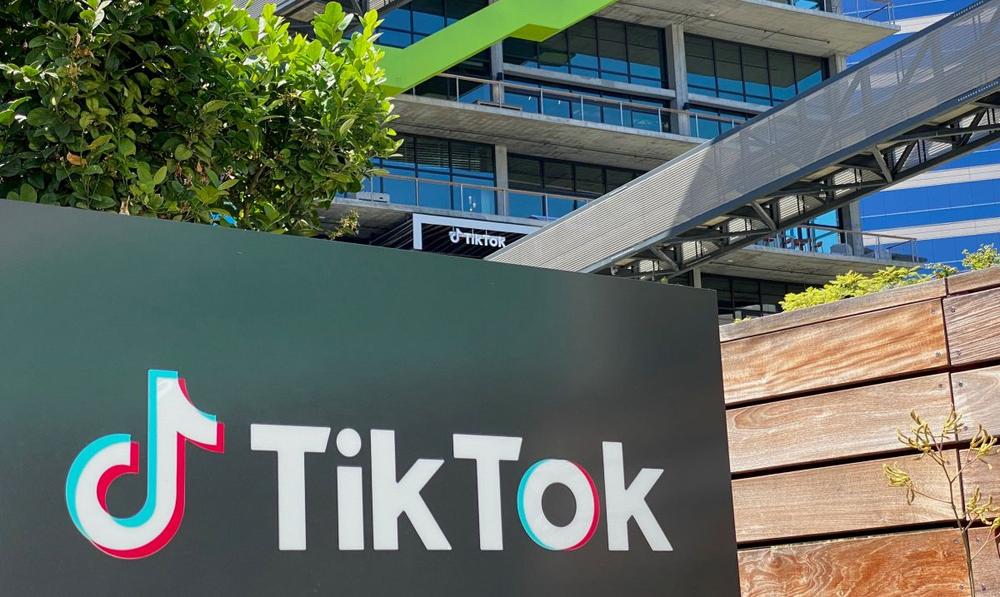Key developments on Oct. 4-5:
- Massive Russian attack on Ukraine kills 6, injures 18
- Ukraine confirms drone strike on one of Russia's biggest, most modern oil refineries near St. Petersburg
- Czechia's populist Ano party wins parliamentary elections, threatening future aid to Ukraine
- Ukraine's existence is in Hungary's national interest, Orban says as he continues to oppose EU aid to Kyiv
- Ukraine hits Russian cruise missile ship on Lake Onega, military says
A large-scale Russian attack across Ukraine killed at least six people and injured at least 18 overnight on Oct. 5, according to authorities.
Russia launched around 500 drones and more than 50 missiles, including Kinzhal ballistic missiles, targeting at least nine regions — Lviv, Ivano-Frankivsk, Zaporizhzhia, Chernihiv, Sumy, Kharkiv, Kherson, Odesa, and Kirovohrad oblasts, President Volodymyr Zelensky said.
In Lviv Oblast, four people were killed and another eight were injured. The four dead were from the same family, and included a 15-year-old girl, the Lviv Regional Prosecutor's Office reported.
It was the largest attack on the region since the start of Russia's full-scale invasion, with 140 drones and 23 cruise missiles. Gas transportation infrastructure was one of the main targets as temperatures drop and the heating season approaches, Kozytskyi said.
Chinese reconnaissance satellites also reportedly flew over Lviv during the attack, Militarnyi reported, though the outlet noted that "it is unknown whether these satellites conducted actual reconnaissance during their flights over Ukraine."
In the city of Zaporizhzhia, at least one person was killed and at least 10 were injured, Governor Ivan Fedorov reported.
Russian forces fired drones and aerial bombs at Zaporizhzhia, hitting an industrial enterprise and residential buildings, Fedorov wrote.
A major energy facility was also damaged, cutting off power to a "significant number" of consumers in the city and surrounding region, the Energy Ministry reported.
In Kherson, a 77-year-old man was killed by Russian shelling, Governor Oleksandr Prokudin reported.
Ukraine confirms drone strike on one of Russia's biggest, most modern oil refineries near St. Petersburg
Ukrainian drones struck an oil refinery in Kirishi, in Russia's Leningrad region, overnight on Oct. 4, Ukraine's General Staff confirmed.
Eyewitnesses initially reported seeing a fire break out at the Kirishi refinery. Regional Governor Alexander Drozdenko confirmed the drone attack and fire but did not identify the facility, adding the fire had been extinguished.
Video and photos published by Astra, an independent Russian news channel, appeared to show a large explosion and flames rising from the refinery. The strike was later confirmed by the General Staff in a post on social media.
The refinery, located more than 800 kilometers (500 miles) from Ukraine's border, is one of Russia's largest and most modern. It was opened recently, in 2017, and accounts for 6.6% of Russia's total oil refining volumes.
It has been targeted at least three other times — in September and March this year and in March 2024. Ukraine's military also claimed responsibility for the September and March 2025 strikes.
Czechia's populist Ano party wins parliamentary elections, threatening future aid to Ukraine
Czechia's populist Ano (Yes) party, led by former Prime Minister Andrej Babis, won the October parliamentary elections with around 35% of the vote.
With over 98% of ballots counted, Ano led with 34.5% of the vote, while the ruling Spolu (Together) party secured 23.4%. The liberal centrist STAN party followed with about 11%, followed by the liberal Pirates (8.9%) and far-right SPD (7.8%).
Ano has not won an outright majority and will have to cooperate with other factions to form a governing coalition. Current election results indicate the party has earned 81 seats in the Chamber of Deputies, Prague's 200-member lower house of parliament.
The Ano party is opposed to Ukraine's membership in the European Union and does not support aid to Ukraine. The party will have the first opportunity to form a new coalition government and is expected to partner with populist, right-wing, and anti-NATO factions.
Parties needed to clear a 5% threshold to earn seats in parliament. Babis is expected to begin talks with the SPD and another right-wing populist movement, Motorists for Themselves, a Euroskeptic faction founded in 2022 that gained 6.78% of votes.
Billionaire oligarch Babis previously served as prime minister from 2017-2021. His party was favored to win the elections after he surged in popularity due to concerns over the economy and criticisms of the current government, led by Prime Minister Petr Fiala.
Czechia has been one of Kyiv's staunchest allies since the early days of Russia's full-scale invasion. Prague has supplied tanks, multiple launch rocket systems, and helicopters in military aid packages and hosted hundreds of thousands of Ukrainian refugees.
Most significantly, Czechia in 2024 launched its ammunition initiative to provide Ukraine with urgently needed artillery shells during a severe front-line shortage. Czechia served as an intermediary for 15 participating nations buying shells for Ukraine on global markets.
The program has made a significant impact, with President Volodymyr Zelensky crediting the initiative for saving lifes on the battlefield and strengthening Ukrainian troops' positions.
Czechia plans to provide Ukraine with up to 1.8 million shells by the end of 2025.
Ano's win threatens the future of the ammunition initiative, as Babis has sharply criticized the scheme and pledged to do away with it if his party regains power.
Ukraine's existence is in Hungary's national interest, Orban says as he continues to oppose EU aid to Kyiv
In a recent interview, Hungarian Prime Minister Viktor Orban said that Ukraine's existence is important for Hungary's national interest, despite his track record of opposing European Union aid to Kyiv.
"The good thing is that there is a territory between Hungary and Russia that is now called Ukraine. This is a strategic interest of Hungary that Ukraine exists. This is not a geopolitical point of view... But from the point of view of the Hungarian national interest," Orban said.
Orban's latest remarks contradict an earlier statement from the the Hungarian leader, who on Sept. 29 claimed that Ukraine is not a sovereign state amid allegations from Kyiv that Hungarian drones had violated Ukraine's airspace.
Orban has repeatedly voiced opposition to Ukraine's EU bid and for the bloc's support to Kyiv as it fends off Russia's war. Hungarian authorities are widely considered the most Moscow-friendly within the EU.
"We support a strategic agreement with Ukraine. A strategic agreement between the EU and Ukraine. Not a membership, but an agreement," Orban said in the interview.
On Oct. 3, Orban said that Hungary will oppose Ukraine's accession to the EU, claiming that admitting Kyiv would drag the bloc into war with Russia.
"Ukraine is a country with a very difficult fate. Why should we share in this difficult fate? We have our own fate, which is much easier than that of the Ukrainians," he said.
Ukraine hits Russian cruise missile ship on Lake Onega, military says
Ukrainian Special Operations Forces (SSO) struck a Russian Buyan-M-class small missile ship, a carrier of Kalibr cruise missiles, in Russia's republic of Karelia, the military reported on Oct. 4.
The Russian missile ship "Grad" was struck on Lake Onega in the Republic of Karelia at 04:31 a.m. local time on Oct. 4, according to the SSO.
"The missile carrier was travelling from the Baltic Sea to the Caspian Sea. The damage was to the right side of the ship's power plant compartment. Further details are being clarified," the SSO said in a statement.
"Special Operations Forces continue to conduct asymmetric and sensitive actions to stop the enemy," the statement says. It did not state what weapon was used in the attack.
The Kyiv Independent could not verify the claims.
The Buyan-M-class ship, also designated Project 21631, is a small but heavily armed corvette capable of operating in shallow waters. The vessel was among the first Russian surface ships used to launch Kalibr missiles which regularly target Ukrainian cities in mass missile strikes.
Repeated Ukrainian attacks using naval drones, missiles, and long-range drones have forced the Kremlin to reduce its naval presence in occupied Crimea.
To date, Ukraine has destroyed several Russian vessels, including the Caesar Kunikov landing ship, the Sergei Kotov patrol ship, the Ivanovets missile corvette, and multiple high-speed landing crafts.
 “I’d instantly quit”: Worker horrified after job forces super invasive time-tracking software
“I’d instantly quit”: Worker horrified after job forces super invasive time-tracking software